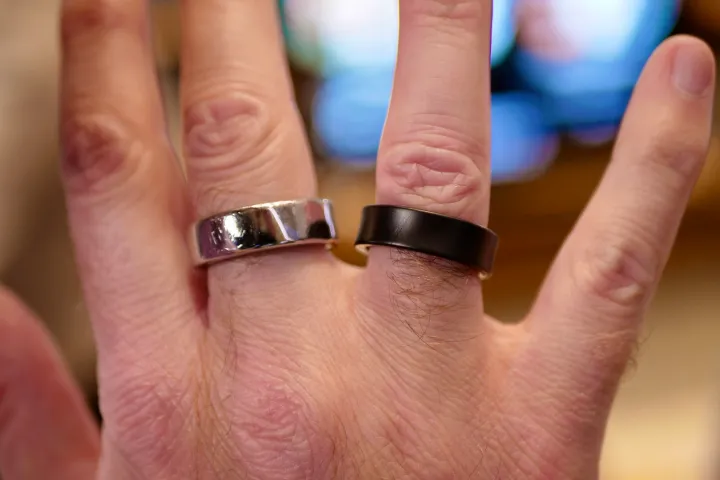
One of Samsung’s most notable new releases this year is the Galaxy Ring.This innovative product not only marks a new venture for Samsung but also positions it as the first major smartphone brand to enter the smart ring market,previously dominated by smaller companies like Oura.
The Galaxy Ring is a compact wearable device designed to be worn on your finger.It monitors various health metrics,such as heart rate and sleep patterns,and utilizes AI algorithms to provide insights like an Energy Score and a Sleep Score.While the Galaxy Ring is compatible with any Android phone that has Samsung Health installed,it does not support iOS,which I believe is its biggest flaw.
The exclusion of iOS users from accessing the Galaxy Ring is a significant oversight.As an iPhone 15 Pro user who has also used the Oura Ring and spent time with the Evie Ring,I find this limitation particularly frustrating.The smart ring market includes several options that work with both iOS and Android,such as the Circular Ring Slim,Ultrahuman Ring Air,and RingConn Smart Ring.The Evie Ring,although initially not Android-compatible,is expected to get an Android app eventually.
Samsung’s decision to exclude iOS compatibility with the Galaxy Ring seems arbitrary,especially considering that smart rings do not run proprietary software on the device itself.Unlike smartwatches that operate on platforms like Wear OS,smart rings simply use Bluetooth to connect to your phone.This raises the question of why Samsung hasn’t developed a Samsung Health app for iOS,similar to how Google’s Fitbit app supports both platforms.
By excluding iPhone users,Samsung is potentially alienating a significant portion of the market.As someone who has used the Oura Ring for years,I would have liked to explore the Galaxy Ring.However,its lack of iOS compatibility means I have no choice but to stick with Oura.It’s puzzling why Samsung would not create a more inclusive product,especially when even Google’s Fitbit works across both ecosystems.
While I understand the complexities involved,not making the Galaxy Ring available to iPhone users feels like a missed opportunity.Samsung could have attracted iPhone users to its ecosystem by offering the Galaxy Ring,possibly encouraging them to try other Samsung products in the future.Instead,the decision reinforces the divide between the Samsung and Apple ecosystems.
In closed ecosystems,where even accessories like a smart ring are restricted to specific platforms,consumers ultimately lose out.It’s disappointing to see such potential squandered due to platform exclusivity,and it leaves me hoping for a more inclusive approach in future releases.